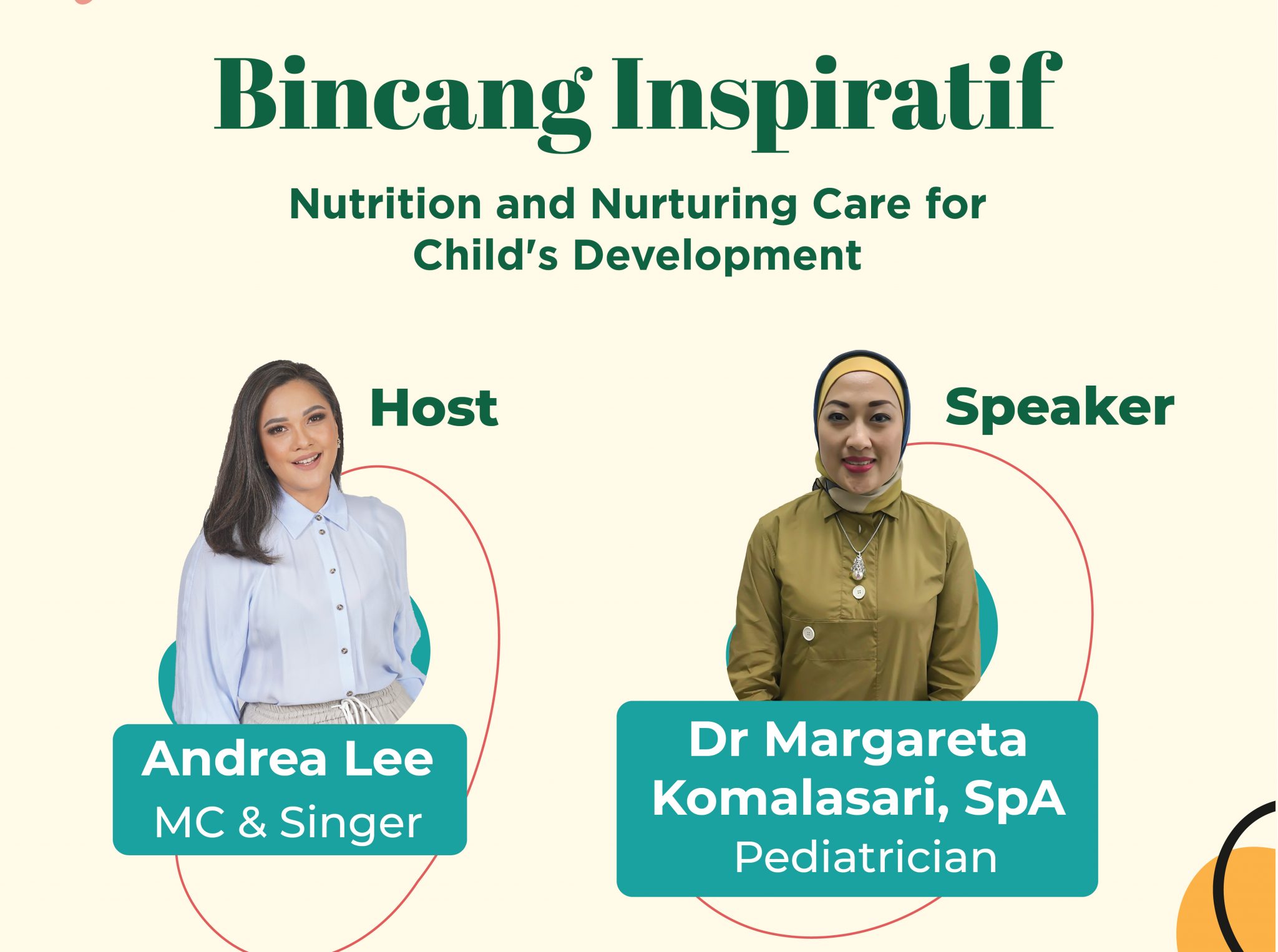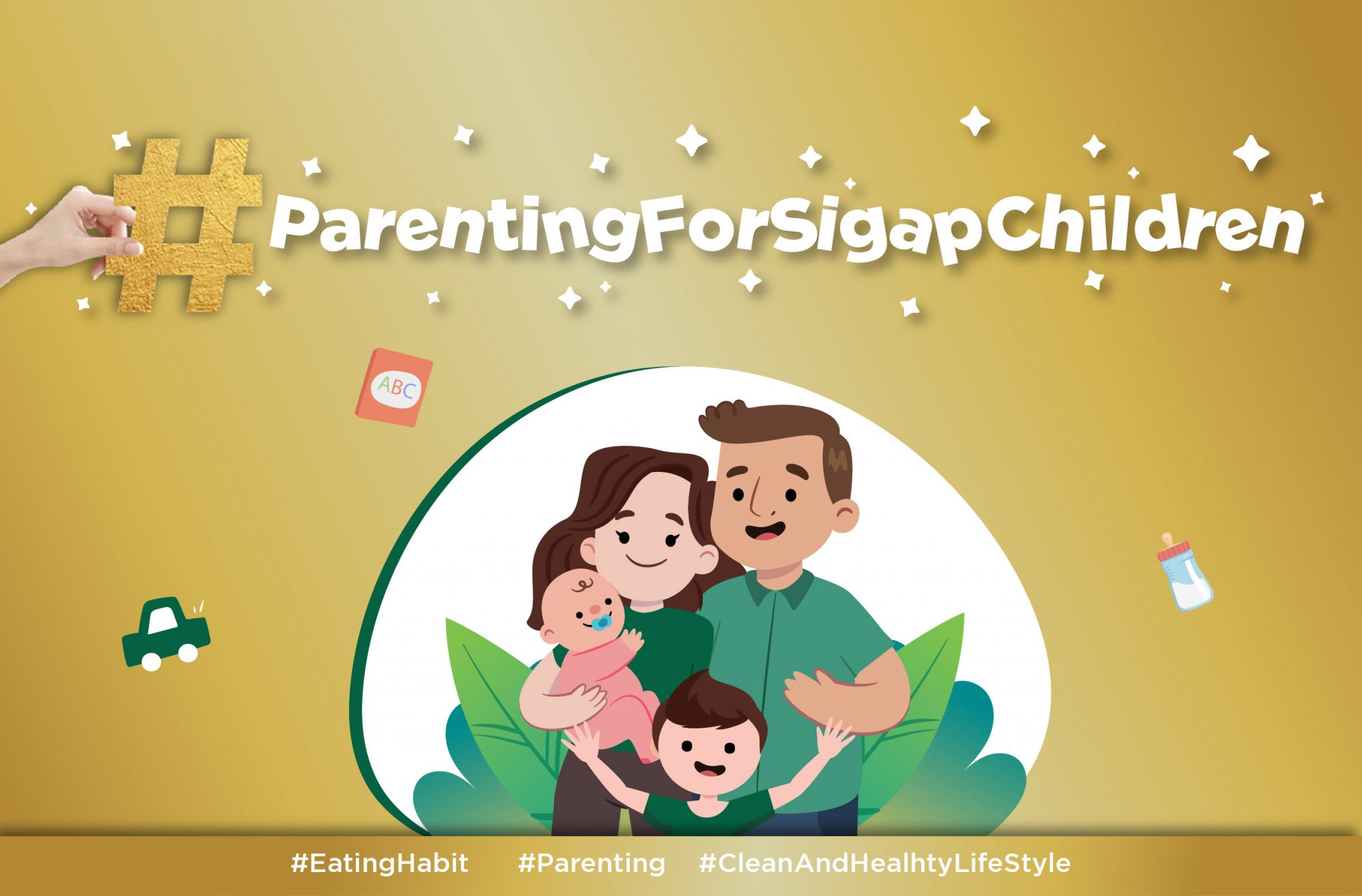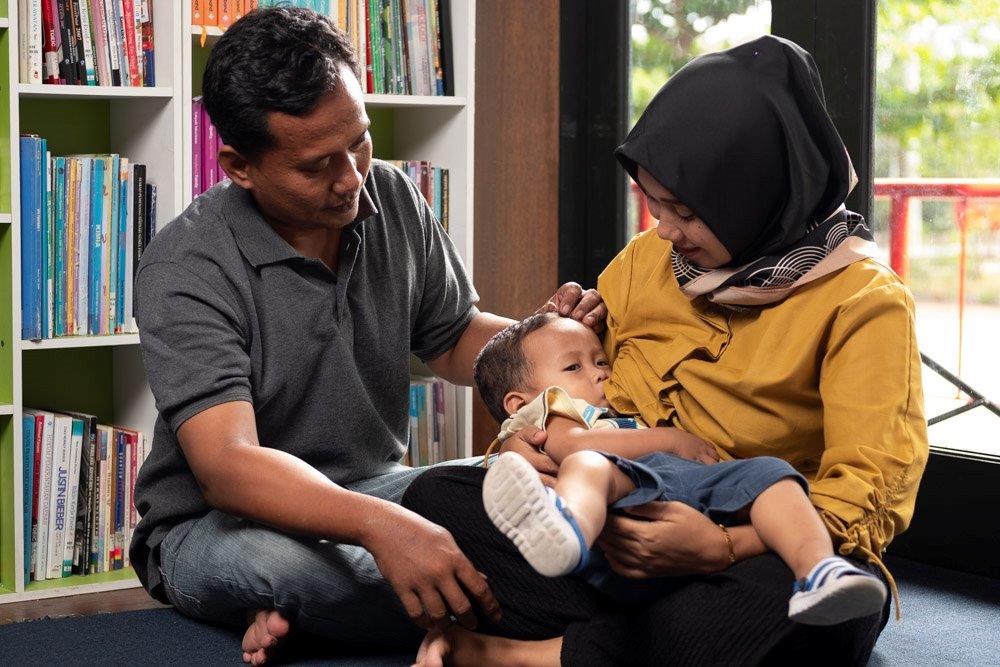Indonesia’s third president, the late BJ Habibie stood at 162 cm tall. To many Indonesian parents, Habibie is a testament that someone’s height does not necessarily define their capabilities. But this notion might cause more harm than good, especially if it leads parents to be lax in ensuring their child’s development.
Height is one of the most obvious ways to detect of stunting, which is detrimental for a child’s physical and brain development. A child is stunted if their height is more than two standard deviations below the World Health Organization (WHO) Child Growth Standards median.
“Lack of nutrition does not only affect a child’s height, but also their intelligence,” said Dr Margareta Komalasari, SpA, a pediatrician. According to Dr Margareta, not many parents understand that malnutrition does not only hinder a child’s physical growth but also their brain development as well.
In the latest episode of Bincang Inspiratif by Tanoto Foundation, Dr Margareta spoke to host Andrea Lee about the importance of nutrition and nurturing care to a child’s brain development. This episode covers:
- – The significance of the first 1,000 days of life
- – Complementary food for baby
- – Role of nurturing care in child’s development
https://www.instagram.com/tv/CU9vkq5K6NK/embed/?cr=1&v=14&wp=540&rd=https%3A%2F%2Fwww.tanotofoundation.org&rp=%2Fen%2Fnews%2Fbincang-inspiratif-nutrition-and-nurturing-care-for-childs-development%2F#%7B%22ci%22%3A0%2C%22os%22%3A1343%2C%22ls%22%3A1134%2C%22le%22%3A1294%7D
The first 1,000 days of life
Ensuring a child’s development does not only start from the day they are born, but from the early days of pregnancy. The first 1,000 days of life, a period between early pregnancy and a child’s second birthday, have an everlasting impact on a child’s growth and development. Early childhood care is even more crucial considering the fact that a child’s brain reaches 80% of its adult size by the age of three and 90% by the age of five.
“A child’s development is influenced by two factors: genetics and environment, including nutrition,” said Dr Margareta. “Hence, it’s important for expecting mothers to fulfill both macro and micronutrients that are needed for the fetus’s development.”
Macronutrients, consisting of carbohydrates, proteins, and fats, are needed in large doses. Proteins are particularly important for brain development.
Micronutrients, on the other hand, are only needed in small doses. But deficiencies of micronutrients, such as vitamins and minerals, could have detrimental effects both in the short and long term.
According to Dr Margareta, an expecting mother needs roughly an extra 300 calories per day, and she cautioned against recent trends in which pregnant women avoid eating too much to avoid significant weight gain.
“It’s normal to gain weight during pregnancy. However, too much is also not good for your baby,” said Dr Margareta. “Generally speaking, the weight gain during pregnancy should not exceed 16 kg to avoid gestational diabetes or hypertension.”
Introducing complementary food
A newborn baby should be breastfed exclusively until they are six months old. Then, parents can introduce weaning food to their diet. WHO recommends that parents introduce pureed, mashed, and semi-solid food before gradually increasing the quantity and consistency of the food until the child’s first birthday.
“It’s important that these foods remain complementary and that parents should care about the nutrition and the texture of the food itself to prevent choking,” said Dr Margareta. She also said that in the beginning, the baby should not consume too many vegetables as these might hinder nutrition absorption. Fruits should also be limited as they are sugary, which might lead the baby to refusing less-sweet food.
While many parents are cooking weaning food from scratch, buying fortified food is okay too. What matters is that the child gets enough calories and nutrition, according to Dr Margareta.
More than just food: The significance of nurturing care
“A child does not just sit and eat,” said Dr Margareta. “They also need love and a stimulating environment as well.”
The latter two are known as nurturing care, which is crucial to ensuring a child’s early childhood development according to the Unlocking Children’s Potential to Learn report by Filantropi Indonesia and Tanoto Foundation.
According to Dr Margareta, nutrition alone is not enough. To ensure that a child is growing and developing optimally, parents should also provide enough stimulation especially during the golden age.
While the pandemic has limited the activities that parents and children can do, Dr Margareta suggested that parents just need to be creative. Parents can still ask children to play catch or learn to ride a bicycle to train their rough motor skills and accompany them to draw or play with playdough to enhance their fine motoric skills.
“When they’re in their copying phase, facilitate their creativity and let them play pretend at home,” said Dr Margareta.
Even more crucially, parents have to help children build their self-confidence by supporting them and to not speak in a condescending manner. “Our offhand comments or criticisms might affect them profoundly. Speak with love and believe in them,” said Dr Margareta.
“Remember, all kinds of support from nutrition to nurturing care must be integrated to ensure optimal growth and development,” she summed up.






